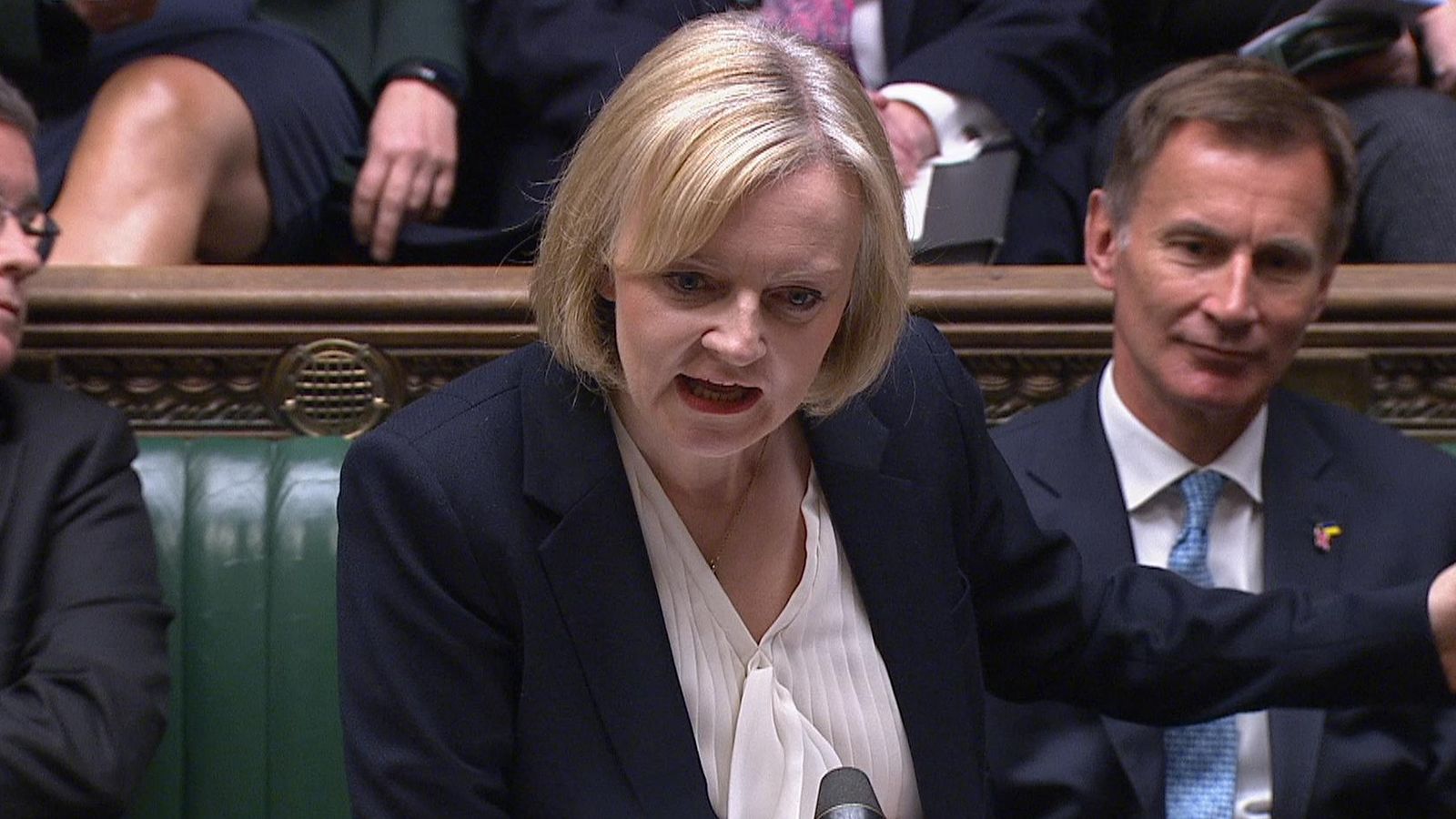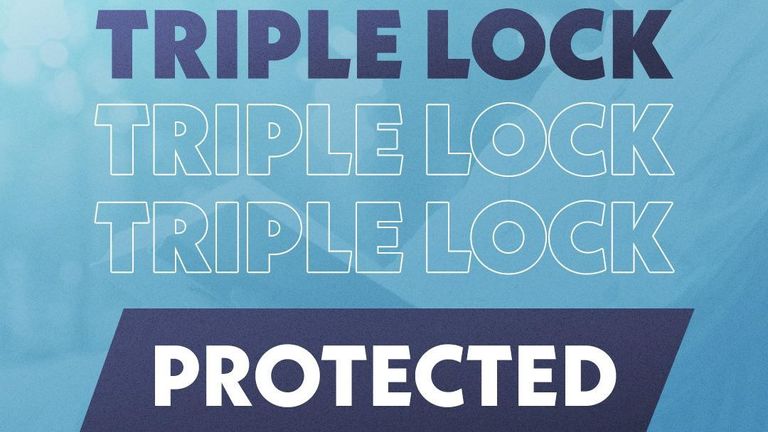Liz Truss has said she is “completely committed” to the pensions triple lock at a make-or-break PMQs in the Commons on Wednesday.
That means state pensions should rise in line with inflation – currently running at a rate of 10.1%.
Ms Truss made the commitment in the Commons despite new chancellor Jeremy Hunt on Monday explicitly ruling out committing to any pledges, including the triple lock, ahead of 31 October when he will announce a medium-term fiscal plan. A Downing Street spokesman repeated it on Tuesday.
But asked by the SNP’s Westminster leader Ian Blackford on Wednesday if she would break the triple lock promise, Ms Truss said: “We have been clear in our manifesto that we will maintain a triple lock and I am completely committed to it, and so is the chancellor.”
‘Out by Christmas?’ Truss ridiculed over U-turns – follow live politics updates
Ms Truss’ spokesman then confirmed the PM and the chancellor had agreed their position on the triple lock today, despite Mr Hunt promising no new commitments just 48 hours before.
The triple lock was introduced on state pensions in 2010 by David Cameron’s coalition government and guarantees pensions will not lose value in real terms by increasing by the greatest of these three:
- Inflation, as measured by the Consumer Prices Index (CPI
- 2.5%
- or the average wage increase.
In the Conservative Party’s 2019 manifesto, it said it would keep the triple lock in place but that was suspended during the pandemic due to the unusually large rise in average earnings after the government’s furlough scheme ended.
The government earlier this year pledged to restore the triple lock from April 2023 but after Ms Truss’ many U-turns on Monday this was in question.
Just hours before PMQs, Foreign Secretary James Cleverly refused to commit to the triple lock when asked by Sky News.
Shortly after PMQs finished Tory MPs started tweeting out a graphic that says: “Confirmed: Triple lock, triple lock, triple lock – PROTECTED.”
Today’s PMQs was the first since Mr Hunt performed U-turns on Monday on almost all of the tax cuts announced in the mini-budget three weeks before.
It is also only Ms Truss’s third time facing opposition leader Sir Keir Starmer across the despatch box since becoming PM in early September.
Read more:
‘Mistakes happen’ but replacing Liz Truss will not calm markets, foreign sec says
Which Tory MPs are calling for Truss to go – and how could the PM be ousted?
The government’s position on several points have changed after Kwasi Kwarteng was sacked as chancellor and Mr Hunt replaced him, proceeding to ditch most of Ms Truss’ campaign pledges after the markets reacted badly to the mini-budget.
A growing number of Tory MPs and members are now clamouring for Ms Truss to resign over the crisis as they fear she will not be able to successfully lead them through a general election.
As Conservative Party whips try to stave off a confidence vote in the PM, they have told Tory MPs Labour’s opposition day vote to ban fracking, due to happen this afternoon, is actually a “confidence motion in the government”.
The whips have ordered all Tory MPs to vote against the motion in a three line whip – where those who defy the order can be expelled from the party.
Just before PMQs, one of Ms Truss’ most senior advisers was suspended from Downing Street pending an investigation.
Jason Stein is allegedly responsible for unauthorised negative briefings against former cabinet ministers.


